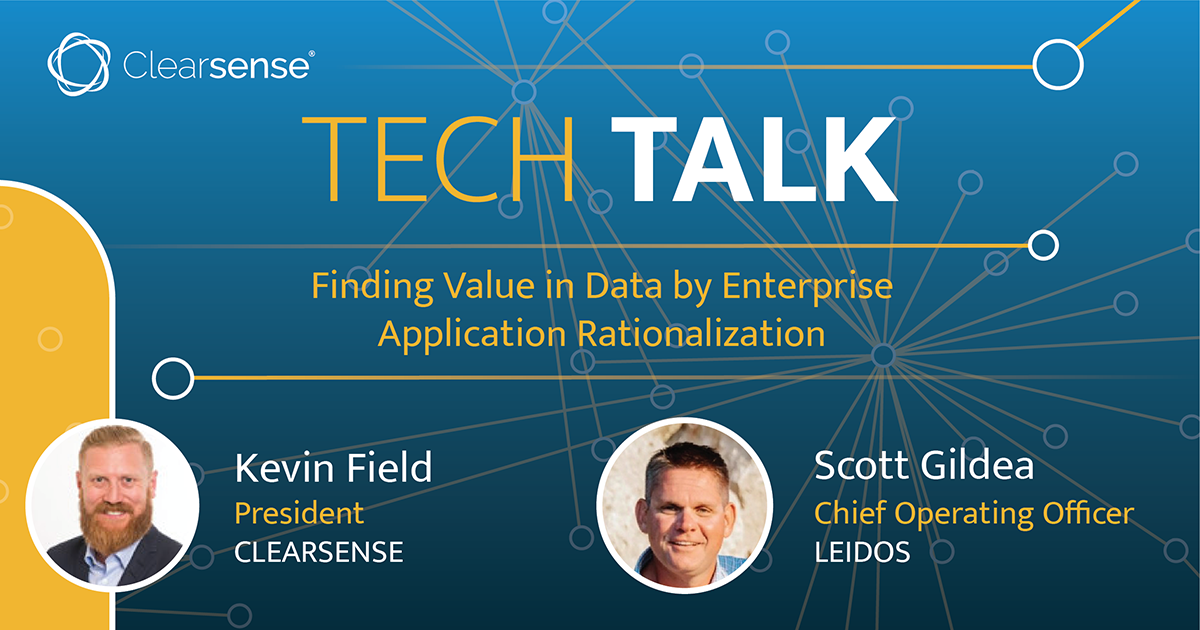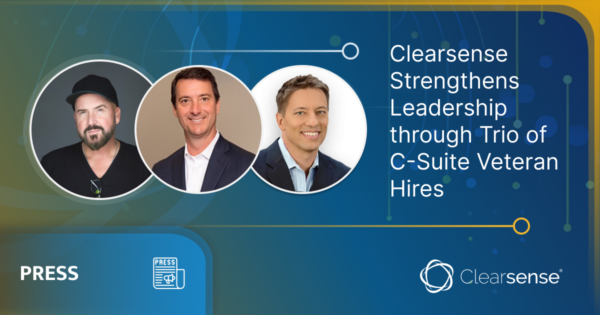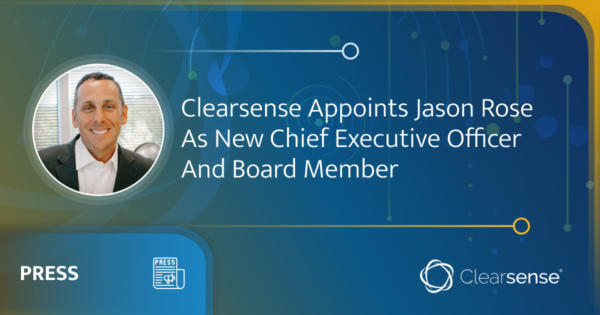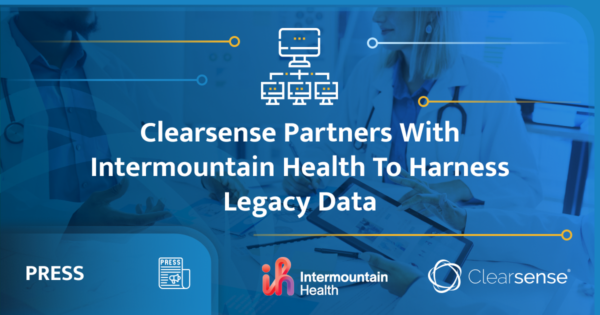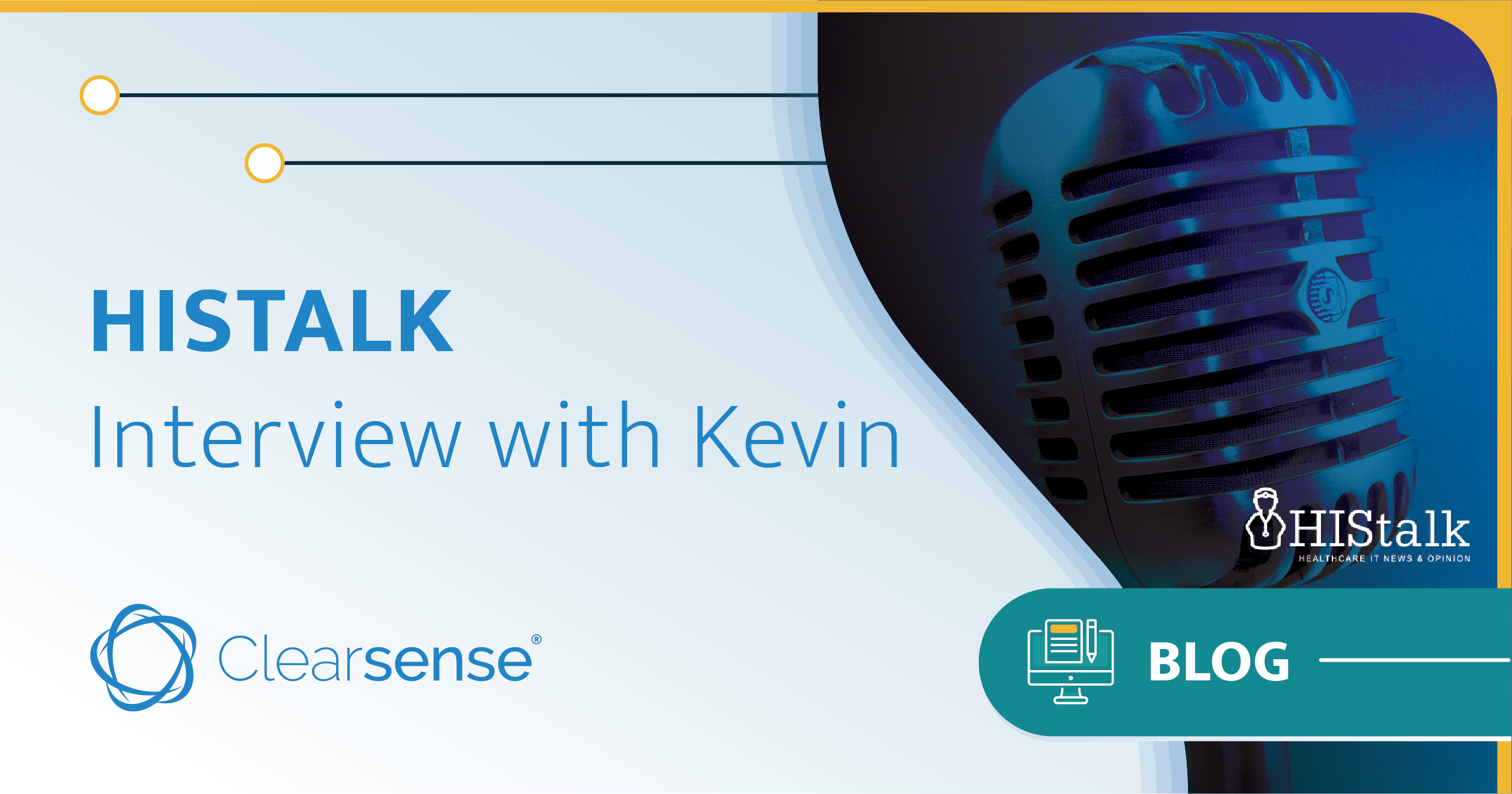
Kevin Field is known around the Clearsense Team as our “Epic Viking” – mostly because of his time spent working in EMR implementations and his impressive beard. But, spend any time around him and you’ll soon hear his passion for changing healthcare for good. He’s an advocate for our “data first” approach and knows that the true power in healthcare is access to information. Get to know more about Kevin in this interview conducted by HISTalk.

Tell me about yourself and the company.
Kevin Field: I joined Clearsense in 2017. Prior to that, I spent nine years working at Epic as an implementation executive, where I oversaw major EMR implementations here in the US as well as internationally. It was a fun time helping these healthcare organizations go through the adoption of enterprise systems to help with their medical records and the processes around that.
When I looked at healthcare IT as a whole, I started recognizing that there was a whole lot of data that we were collecting — certainly within the hospital, but also outside — and we weren’t necessarily taking full advantage of everything that we could do with it. Clearsense is focused on being able to intelligently take all of that data that exists within that ecosystem of health and applying it in a meaningful way to change the way that we can operate in healthcare. That can be through operational-type use cases or improvements, clinical, financial, and even population health. We are focused on how we can make it easier to work with all of that data and get it into the right hands to drive change.
What are the most common use cases you are seeing?
Kevin Field: Data exists in a lot of areas. People are trying to get to more of that prescriptive medicine and thinking about ways to impact the care itself. But there’s a lot of operational improvement that can be a good starting point. We see a lot of healthcare organizations start with rationalizing their applications. It sounds so simple, and it’s not nearly as enticing as some of the more advanced predictive types of use cases, but it’s a practical one, helping organizations take a look at their current portfolios to be able to offload a lot of that data. We work with them to make sure that they can maintain the integrity of it, because there’s still a whole lot of valuable information that exists when you’re looking at these historical systems. We see a lot of groups starting with being able to shut off some of the historical applications and be able to recoup or avoid some of the costs that come alongside of that. That’s a great starting point for a lot of groups.
As they continue to evolve, though, it’s really as big as you can think. You can start to apply this data for research, to advance the ways that you can get from a data-driven hypothesis to applying that in an operational setting.
Recommended Content
That could be anything from throughput to advanced heart failure, any sort of use case set that applies to this area. But what we focus on, and where our industry needs to focus first and foremost, is how to build trust in data. Before you can do any sort of analytical work, before you can do any sort of meaningful work, you have to build up that trust. That’s the foundation.
Are health systems struggling to effectively use the data that they capture in their IT systems?
Kevin Field: Unfortunately, when healthcare systems were forming and data was being designed, there was no master plan. Every single application that these hospital groups operate has come up with its own way to identify data and be able to aggregate and and organize it. That has left us mounds and mounds of data spread across hundreds if not thousands of applications within these provider groups, but no way for them to create a source of truth. It’s a confusing area when you start to look at this data.
A lot of healthcare provider groups have captured a lot of data, but maybe they don’t exactly know what they can do with it, or how to get it organized. Step 1 is being able to build up data literacy, the ability for people to understand data, understand definitions, understand what’s possible with it, be and able to challenge it and look deeper into it. If you’re able to start to work in that capacity, then you have the ability to create initiatives around normalizing that data or curating that data and starting to develop some level of truth in that data so you can apply it.
How does healthcare stack up to other vertical markets in its performance on data maturity models?
Kevin Field: Certainly if you look outside of healthcare, there’s a lot of good literature and good practice of ways to build up that data maturity. A lot of organizations are starting to look at that more seriously. Some maturity models are specific within healthcare as well. Even some of the advanced or healthcare groups that we talk to, if they are being honest with themselves, have pretty low maturity levels.
Much of the time, healthcare organizations are trying to get meaningful information out of reports. That’s foundational for the rest of the work that takes place. There’s a lot more that is possible when looking at that data in a way that is more forward-looking, more universal, or taking into consideration the data that exists in other systems. There’s a lot we can solve for if we put all that data together appropriately and apply the right lens.
Groups are starting to think about how to evaluate themselves on data maturity. Some groups are hiring chief data officers or chief digital officers and starting plans for a data maturity program. But the reality is that data maturity is an evolution. It will be an ongoing cultural shift for these organizations. It’s about building a culture around data for an organization, understanding the value of it, and then building practices around it to continue to evolve and mature. There’s never moment of, “Hey, we’ve reached the top of data maturity and we’re good now.” It’s a constant evolution.
What is the role of data scientists in health systems?
Kevin Field: Data science will be critical for the future of healthcare. We’ve seen that in other industries, where they bring data science as a practice and a staple to drive things forward. Healthcare’s challenge is that there’s not a large number of data scientists who are healthcare specific. Even if healthcare organizations can get those individuals into their systems, providing them access to the data in a way that is meaningful is a challenge. The velocity which they can operate is also challenging.
We’re going to see a lot more healthcare organizations becoming interested in data science. The next step for it to be widely adopted is making it more accessible. We’re going to have to work to continue to have technologies and processes come in that allow for data to be more trusted and more centrally available, and also for data science type initiatives to be more approachable. There are some good examples out there if you look up technologies that are starting to evolve and emerge that can be applied in that space.
That’s going to be what allows us to shift the way that we think about data and healthcare — having people taking a look at it, look for trends, understand what could be coming up or what events are happening, and then ultimately being able to look backwards through that so we understand the drivers so that we can prevent those or catch them earlier. Transparency and trust, again, in data and in the models being created are going to be key for adoption for data science and healthcare.
”We’re going to see a lot more healthcare organizations becoming interested in data science. The next step for it to be widely adopted is making it more accessible.
Kevin FieldPresident
The challenges I’ve seen are getting information into the hands of frontline decision-makers quickly and avoiding turning the process into a mysterious black box where some IT basement guru manipulates raw information in unknown and potentially unsound ways. How does that fit into the culture of using data and the tools needed to manage it?
Kevin Field: A lot of that comes from being able to establish lineage in data, which is critical. When I say lineage in data, by the time you are serving up some insights or results out of a data set or analytical workflow, you have to be able to show exactly where that data came from. If you want somebody to consume it, you have to be able to build that trust up with them and be able to trace that data back to the source. Lineage is absolutely critical and key.
While you’re working on the governance of the data and decision-making on that data, it’s important that the people making decisions on data — what fields are trustworthy and which systems are providing the right information – are making those decisions along with the appropriate data stewards in the healthcare organization. If you are working with a radiology department and radiology data, it’s important that the people from that group have input to understand exactly which data elements are most relevant or which systems are most accurate. By the time you are able to have that output, if you’re not getting those decisions made by some of the true operational owners and the business owners, it makes it challenging for people to trust it.
A lot of orchestration has to take place. Lacking of any sort of black box has to be part of that. Having those IT groups or data scientists who are working in the basement interacting and understanding the data that they’re working with and the people that they’re ultimately serving it up to. If you involve them in the process, there’s a lot better chance for trust and adoption.
What C-system health system roles are being given responsibility for data and analytics?
Kevin Field: I’m seeing a couple of flavors. There is a spectrum of CIOs. There are CIOs who are more the traditional type who have come to own a lot of the technologies and applications. Maybe that’s the world that they continue to operate in. There is another grouping of CIOs that I’ve noticed recently that have realized or recognized that a lot of the healthcare organization’s data sits within the systems that they own, and they are becoming more strategic and more of that operational driver. I’m seeing chief data officers or chief digital officers typically reporting directly to a CEO or a COO.
From a data science perspective, organizations are looking at ways to get data scientists more decentralized so that individual business units don’t have to wait in an IT queue to have their initiatives prioritized and to get results. Having access to the appropriate data and technologies to get better or more timely results and to to get those results ongoing as applied to specific areas will be important.
What developments will be important to healthcare and to your company in the next few years?
Kevin Field: We are going to get data into the hands of the people who are using it. We’re going to build up a culture around data literacy and applicability that will change the way that we operate. We operate so frequently on historical information or reports or looking backwards. As technologies catch up and as a culture of working with data catches up, people will be more proactive and more capable of working with data to solve problems.
It was in the 1990s when latex gloves were adopted into healthcare setting as standard practice. That seems almost shockingly recent. When we look back on today from the future, we will recognize that we had the answers to a lot of our most challenging healthcare problems or questions and just needed to apply the appropriate lens. The future is heading to getting that lens on the data to have new perspective on the problems that we have today and coming up with data-driven ways to provide results.

